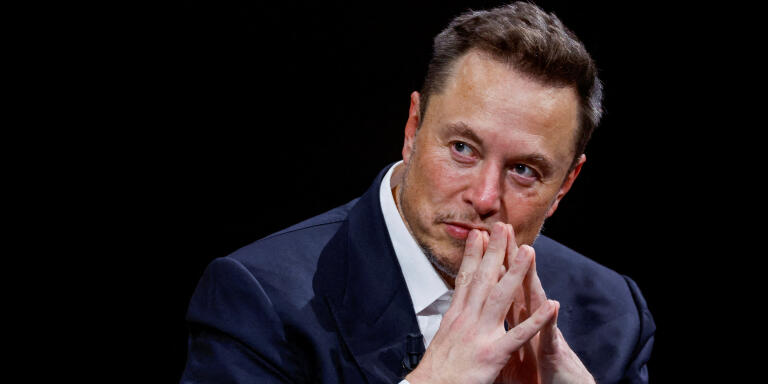


'Elon Musk,' a biography of the multibillionaire and his demons
ReviewReleased this week, this imposing account of the life of the CEO of Tesla, SpaceX and X (formely Twitter), describes a visionary but brutal man consumed by anger.
The main revelation in the book Elon Musk, biography of the multi-billionaire boss of Tesla, Space X, and Twitter (turned X), was that the businessman allegedly unexpectedly blocked a major offensive by the Ukrainian army against the Russian fleet by cutting off access to his Starlink service, which Ukrainian drones use to connect to the internet. But even before the book's release on September 12 in the US and September 13 in the rest of the world, this scoop was being disputed by stakeholders. And Walter Isaacson, the biographer, was forced to specify that Starlink was not activated in Crimea at the time and that Elon Musk, rather than interrupting an attack that had already been launched, had simply refused to extend the service in the region for fear of escalating the conflict.
This inaccuracy largely disrupted the launch of one of the most eagerly awaited non-fiction books of the year. Isaacson, best known for his previous 2011 biography of Steve Jobs, was able to follow Musk for almost two years, until the beginning of 2023, giving him a behind-the-scenes look at dozens of key moments in his subject's life: The twitter takeover, the Starship rocket explosion and the birth of several of his children. The multi-billionaire, who did not read the book before publication, also invited all those closest to him to speak at length with his biographer, giving him access to a gigantic quantity of anecdotes, personal recollections and stories that had never before been told, at least not at this level of detail.
Brutality and trauma
The whole thing makes for fascinating read, not so much for its "great revelations" – there are, after all, quite few of them – as for the color it brings to Musk's character. It's a resolutely dark hue: Tesla's founder comes across as a visionary and courageous engineer, but above all as a detestable human being.
In 600 pages, Isaacson recounts the details of multiple tantrums, brutal dismissals of employees whose only fault was being in the wrong place at the wrong time, and humiliations inflicted on employees and members of his own family. In 2018, when the restaurant chain owned by his brother Kimbal, a historic business partner and one of his closest supporters, was in trouble, he initially refused a loan. "I had my finance guy look at it, and the restaurants are struggling. I think they should die," he told his brother.
This "demon mode," described by his partner, the singer Grimes, as the moments "when he goes dark and retreats inside the storm in his brain," is what Isaacson was looking for in both Musk's past and his psychology. There's his violent, manipulative father, with whom he undoubtedly shares more personality traits than he would like, his repeated beatings at school in South Africa and then there's his very different way of thinking, his taste for excessive risk-taking, his need to generate danger when things are too calm, his lack of empathy. Is it Asperger syndrome, as Musk himself claims? Bipolarity, as several members of his entourage believe? Musk, who happily sleeps under his desk when he's dealing with a crisis – which is very often – is not easily put on the couch.
You have 59.78% of this article left to read. The rest is for subscribers only.
